Guo Rui still vividly remembers his college graduation 10 years ago. As he struggled to pack piles of books collected during his undergraduate years, he decided to sell them at a flea market on campus. To his surprise, they sold out quickly.
For many in China, the touch of a book remains satisfying. According to a national survey, 44 percent of Chinese adults prefer to read in the old-fashioned way – with a real book. In comparison, 33 percent like to read on mobile phones while 9 percent are e-reader fans.
Every book collector has their own favorite. While some like to collect old or second-hand books, others go for books with signatures, bookplates or special seals, Guo said.
Some like to write a note on the first page, marking the time and place that they found the book, like Zhong Weimin, a history professor at Tsinghua University. Sometimes he would sign his name. It is like a sense of belonging, he said.
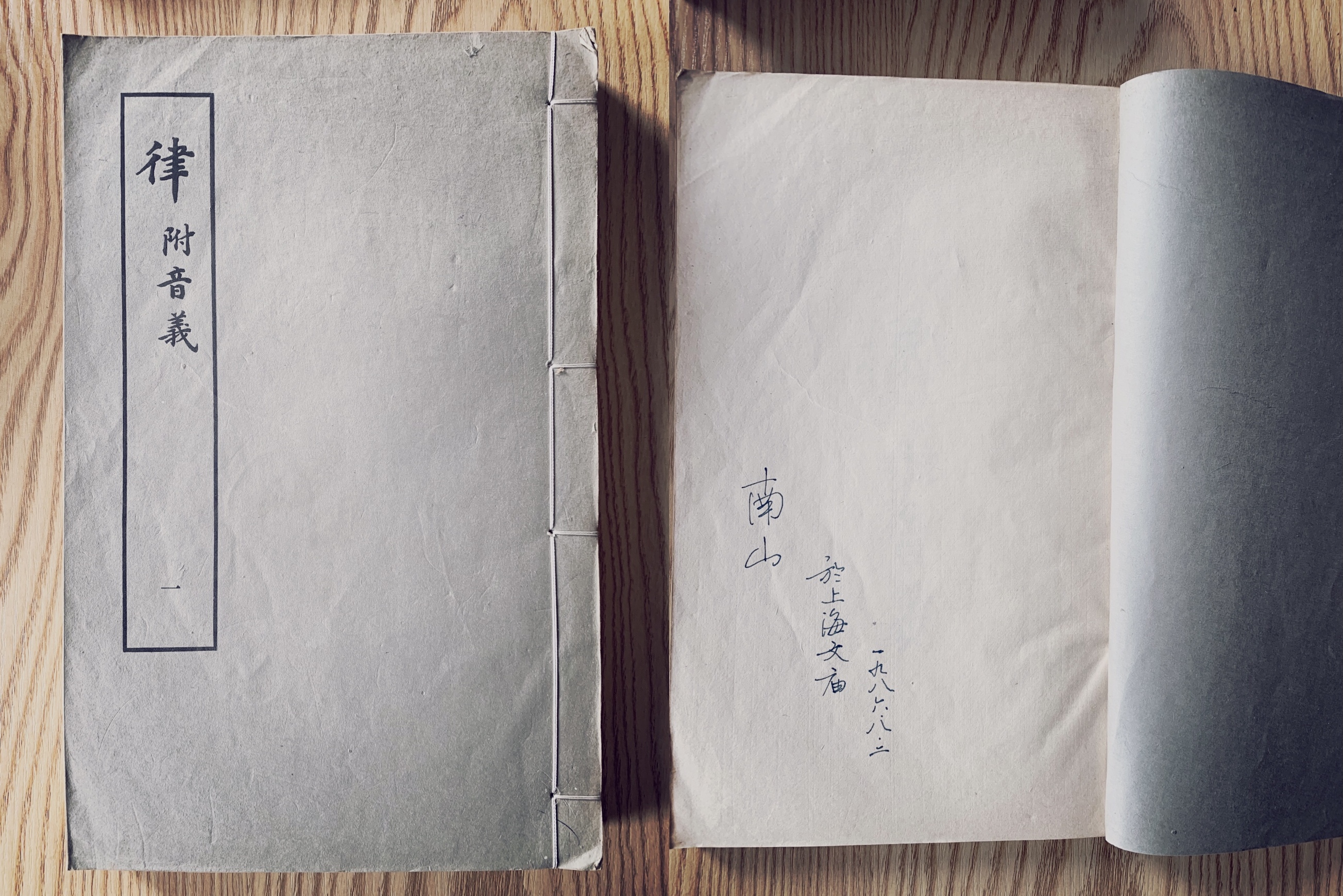
An old book of Tang Lv Shu Yi (The Comments on Tang Code) with the note of "Bought in Wen Miao, Shanghai" and the signature of the pen name "Nan Shan," August 2, 1986. /Courtesy of Zhong Weimin
An old book of Tang Lv Shu Yi (The Comments on Tang Code) with the note of "Bought in Wen Miao, Shanghai" and the signature of the pen name "Nan Shan," August 2, 1986. /Courtesy of Zhong Weimin
"In recent years, I have collected contract documents and ledgers on Chinese economic history," Zhong said. "Unlike old books printed in batches, most handwritten contract documents and ledgers dating back hundreds or even thousands of years ago may be the only items preserved today. As firsthand information for researchers, they are even more valuable than old books."
To better protect these precious ancient records, in 2022, the Government Work Report by China's State Council, for the first time, prescribed measures to strengthen the protection and display of ancient books.
In April, guidelines for preserving and publishing ancient books were issued, emphasizing presenting them to the public more vividly in audio and video forms that are more popular among young people.
Making ancient books more accessible to audiences is as important as the work on collection and rebinding, said Zhou Longxuan, chief editor at Zhonghua Book Company, one of China's most famous and oldest publishers, established in Shanghai in 1912.
A gloomy book market during the pandemic
Over the past two years, brick-and-mortar bookstores throughout China have been hit hard by the pandemic. In 2021, the total book sales of physical bookstores experienced a 31 percent year-on-year decrease compared with that in 2019, the last full year before COVID-19 hit, according to the annual report by Beijing OpenBook Co., Ltd, an industry research company with the largest database on China's book market.
The downturn began in 2020 when China's overall book retail market showed negative growth for the first time in 20 years. While book sale revenues of online bookstores increased by nearly 7 percent, sales in brick-and-mortar stores decreased by more than 47 percent, according to the report.
An increasing number of online bookstores and a rise in e-book sales are partly responsible. In 2020, nearly 80 percent of Chinese read through electronic devices, with over one-third of readers between 18 and 29, according to the 18th national reading survey published by the Chinese Academy of Press and Publication last year.
As a result, some second-hand bookstores have moved their business to the internet. From 2010 to 2020, the sales revenue of online bookstores increased from 5 billion yuan ($773 million) to more than 76 billion yuan, according to the report by Statista, a Germany-based market and consumer data company.
"Previously my store was full of customers during the weekend, but now only a few people show up," said the owner of a second-hand bookstore in Panjiayuan Antiques Market in Beijing called Mrs Li.
Li said their collecting of old books follows a list of used-book conditions, a standard term used by booksellers to describe the state of the used books for sale.
"All books we collect must be well-preserved without scratches or marks on the page," said Li. "It is the respect for the author and the book itself, at least."
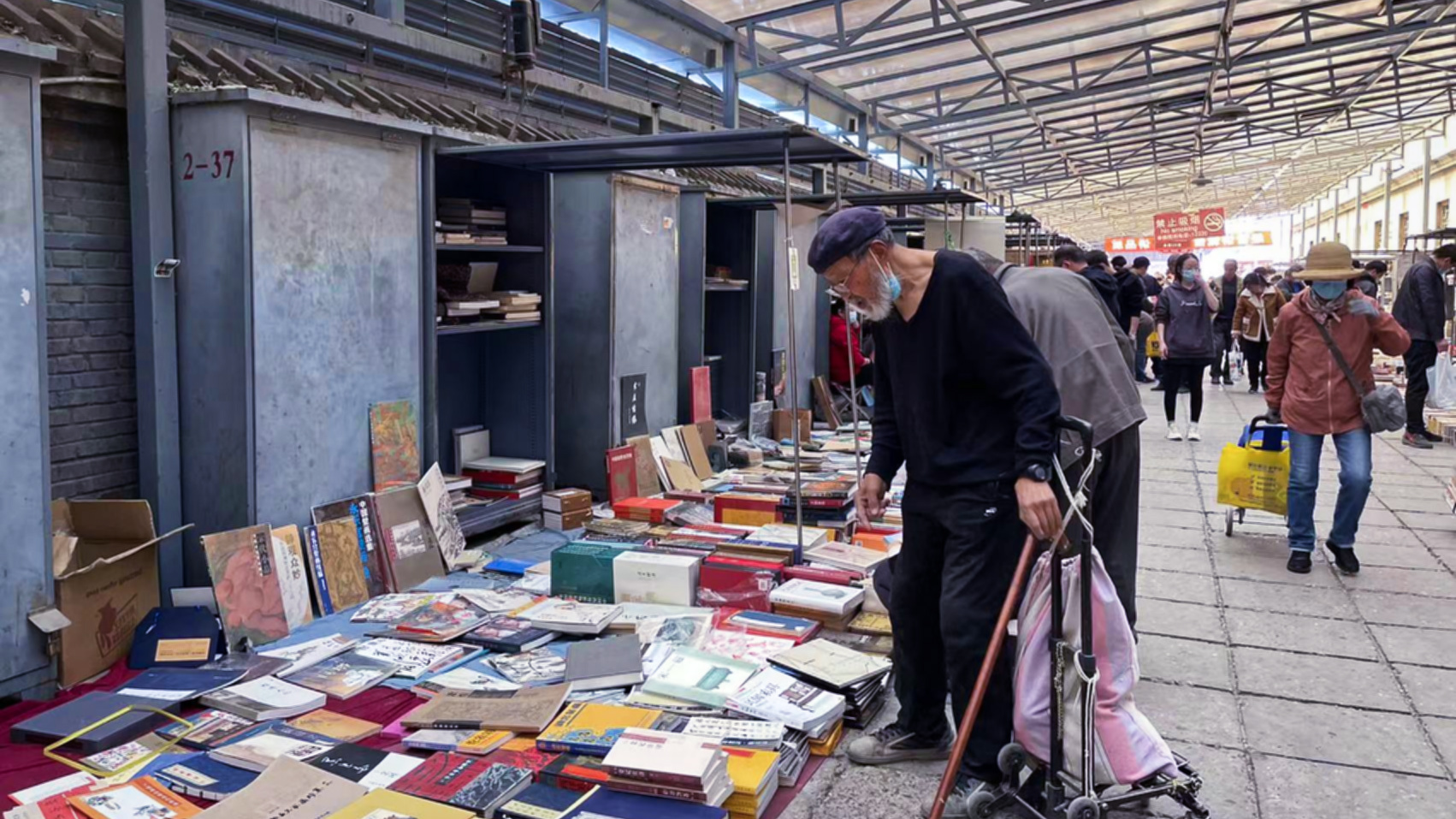
An man looks for books at Panjiayuan book market in Beijing, April 16, 2022. /CGTN
An man looks for books at Panjiayuan book market in Beijing, April 16, 2022. /CGTN
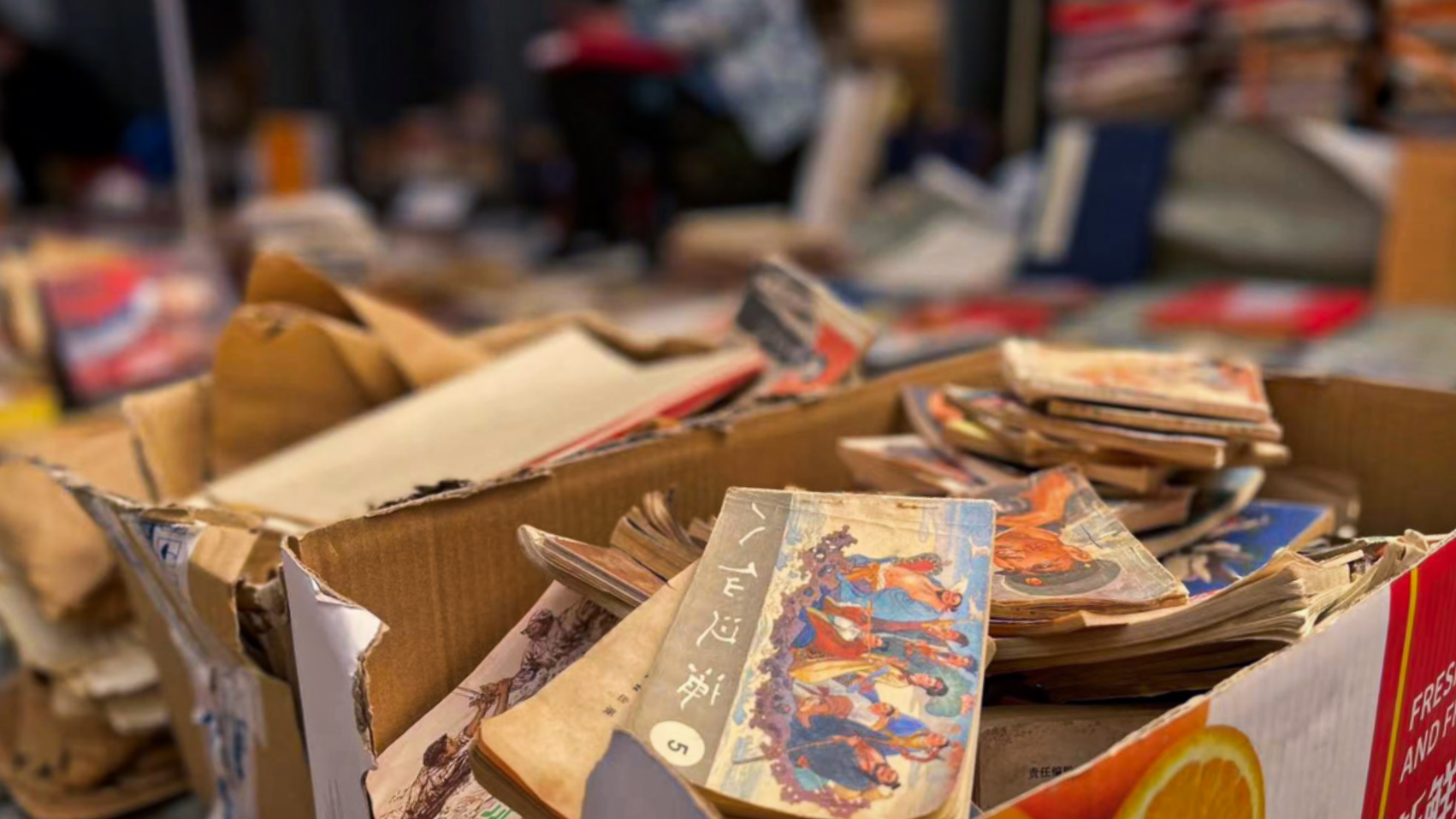
Portable Chinese comic books (Lianhuanhua) at Panjiayuan book market. Lianhuanhua is a type of palm-size comic books popular in China in the 20th century, April 16, 2022. /CGTN
Portable Chinese comic books (Lianhuanhua) at Panjiayuan book market. Lianhuanhua is a type of palm-size comic books popular in China in the 20th century, April 16, 2022. /CGTN

A peddler putting books on his pedicab, April 16, 2022. /CGTN
A peddler putting books on his pedicab, April 16, 2022. /CGTN
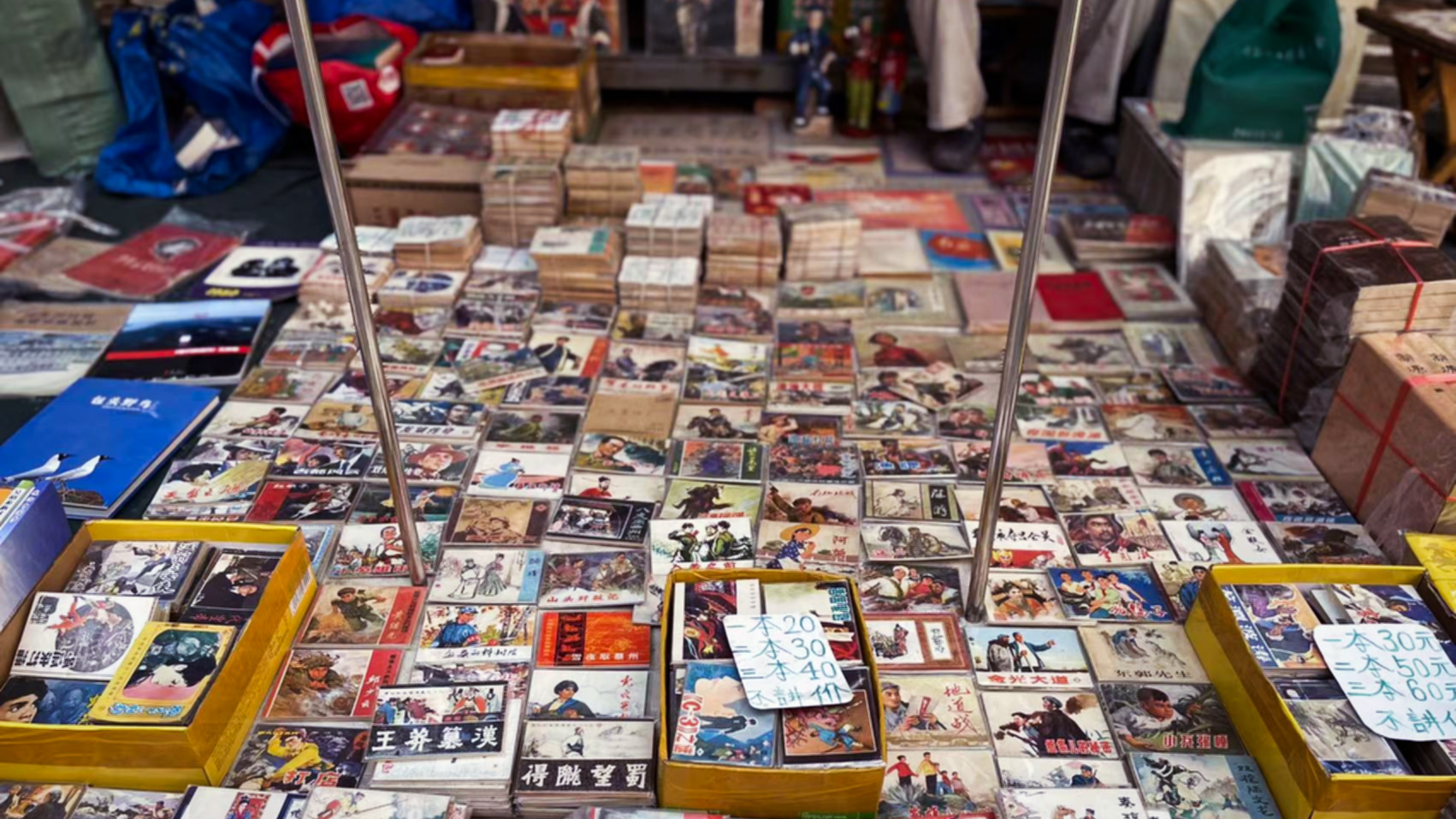
Lianhuanhua at Panjiayuan book market in Beijing, April 16, 2022. /CGTN
Lianhuanhua at Panjiayuan book market in Beijing, April 16, 2022. /CGTN
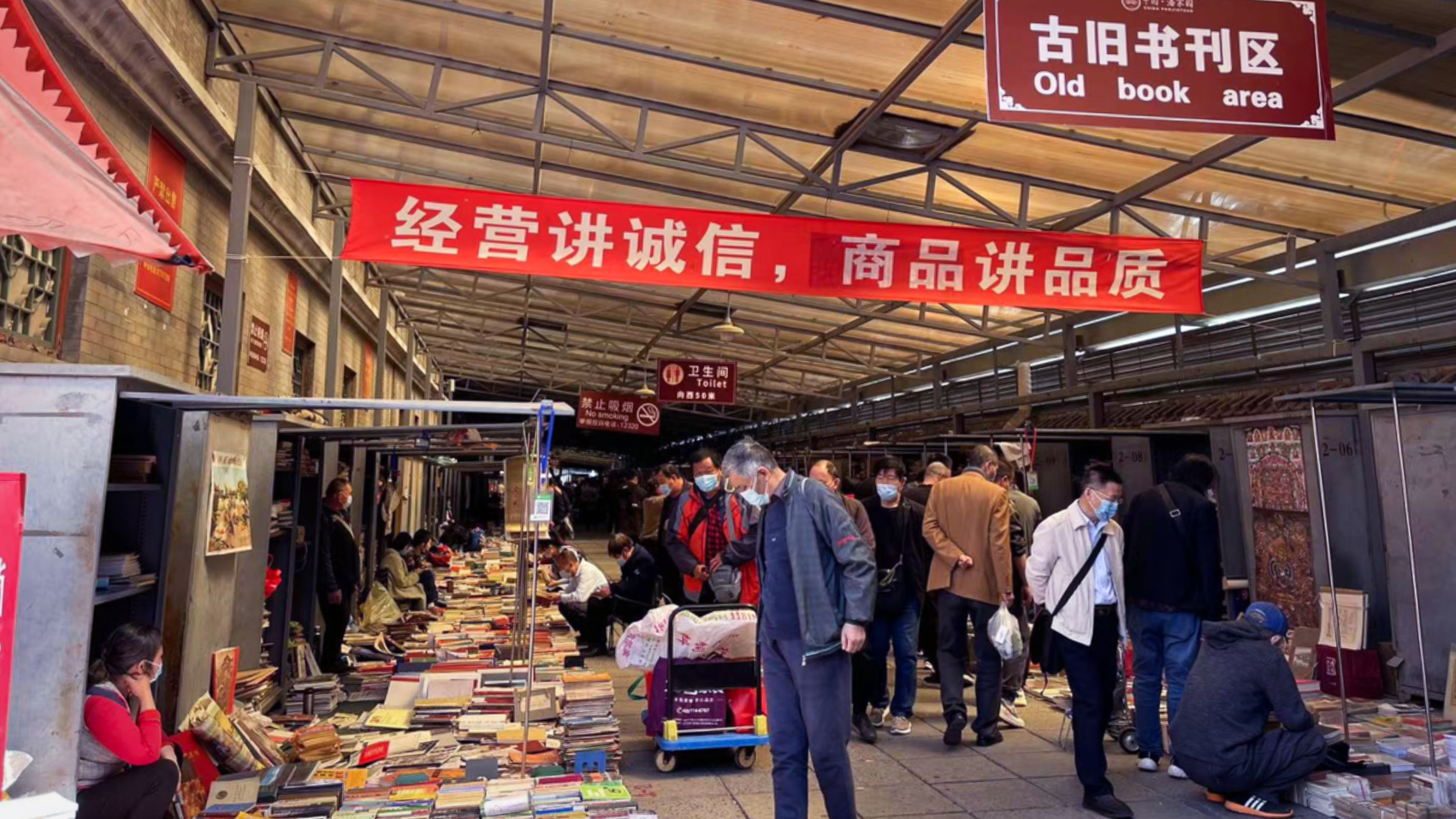
People looking at old books at Panjiayuan book market in Beijing, April 16, 2022. /CGTN
People looking at old books at Panjiayuan book market in Beijing, April 16, 2022. /CGTN
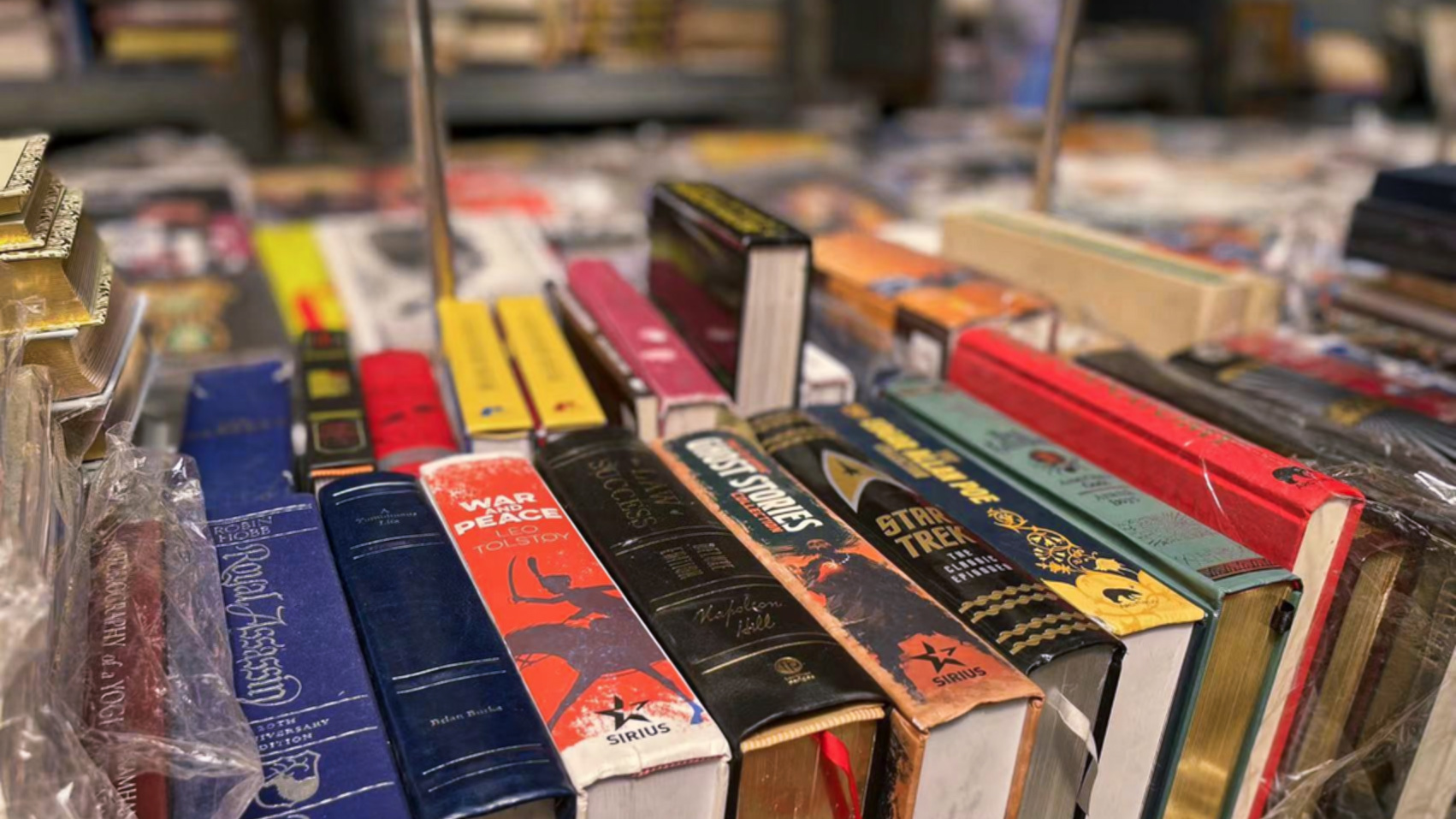
Second-hand classic foreign language books from around the world at Panjiayuan book market in Beijing, April 16, 2022. /CGTN
Second-hand classic foreign language books from around the world at Panjiayuan book market in Beijing, April 16, 2022. /CGTN
Rise of e-library
Libraries in China are also working on digitizing content. In 2016, the National Library of China, Asia's biggest library housing the largest collection of Chinese books, launched " The Chinese Ancient Books Resource Library," releasing more than 10,000 ancient books online.
Within four years, the overall collection of ancient relics such as rare books, paintings, calligraphy, photos and ink rubbings had reached 100,000. Since November 2021, readers do not need to log in to the e-library for full access to all resources.
Back in the 90s, before the advent of e-libraries, researchers were highly dependent on paper versions of ancient books. However, it was not easy to find them in bookstores. Few people except researchers would buy them, so it was unprofitable for publishing houses to go to the libraries and photocopy the authentic versions for retail purposes. Since the 1980s, Zhong has regularly been to China Book Store, a famous ancient work bookstore in Beijing, to secure the books he needed for research.
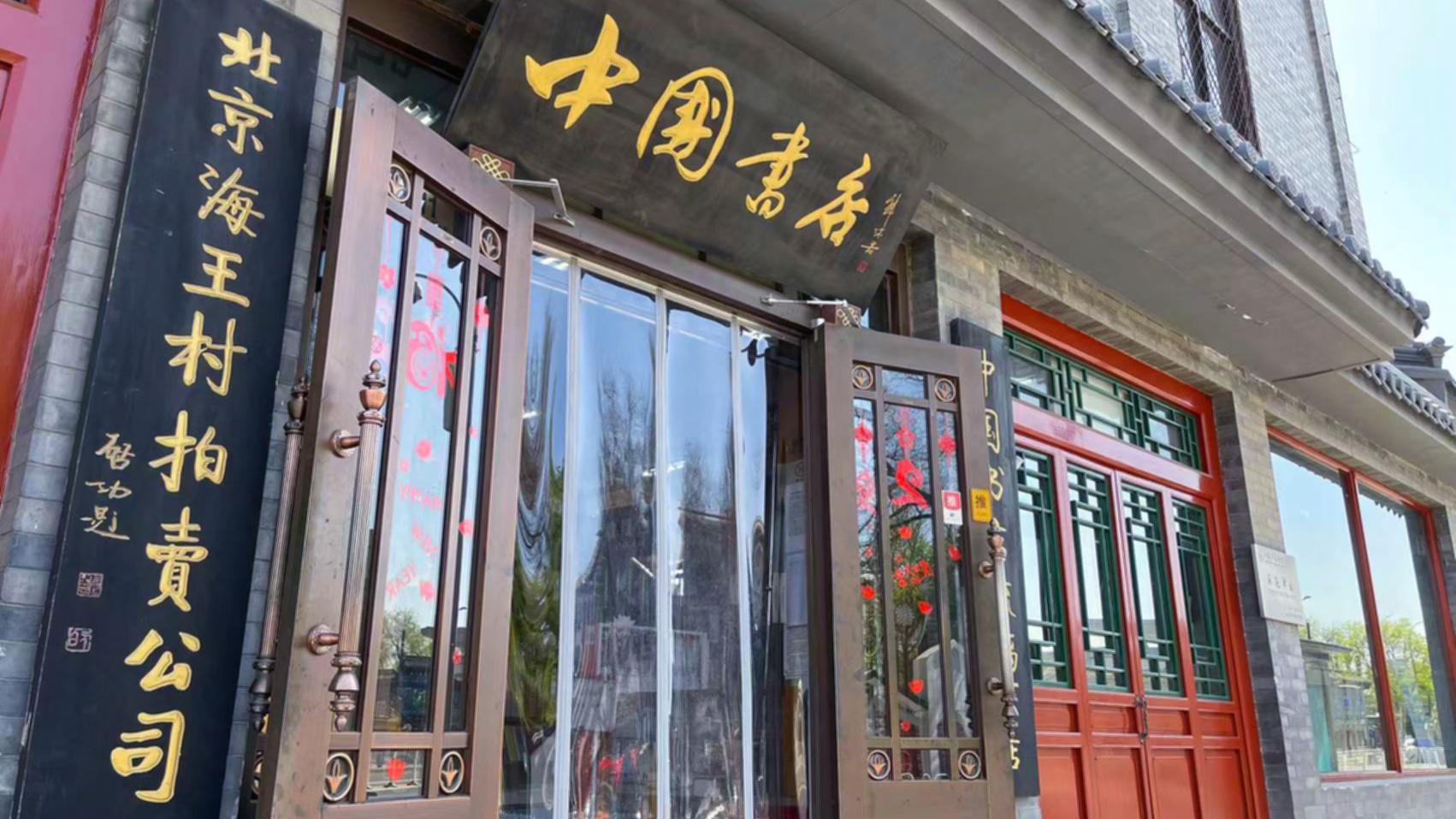
China Book Store in Liulichang in downtown Beijing, April 16, 2022. /CGTN
China Book Store in Liulichang in downtown Beijing, April 16, 2022. /CGTN
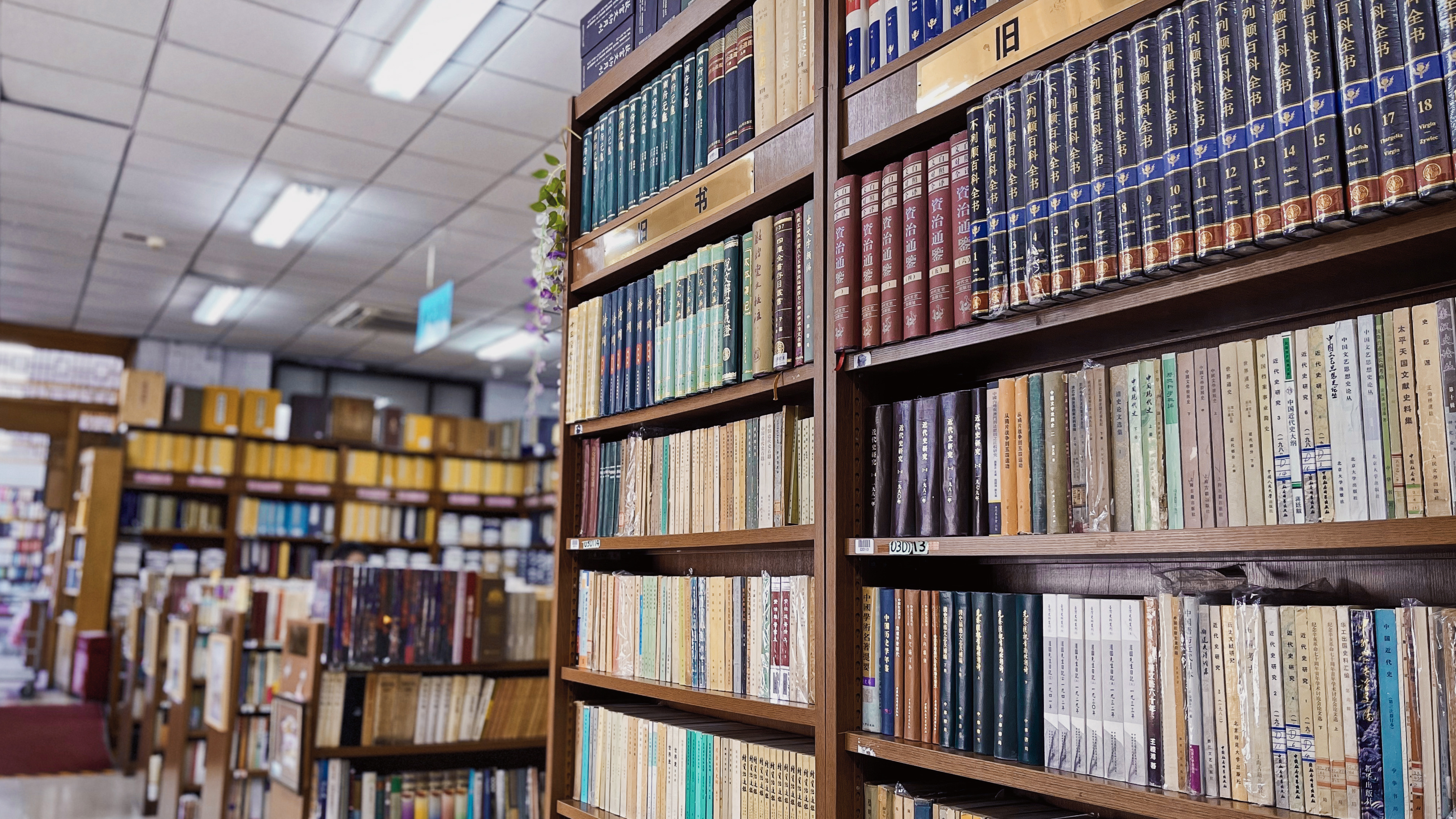
Second-hand books on shelf in China Book Store, April 16, 2022. /CGTN
Second-hand books on shelf in China Book Store, April 16, 2022. /CGTN
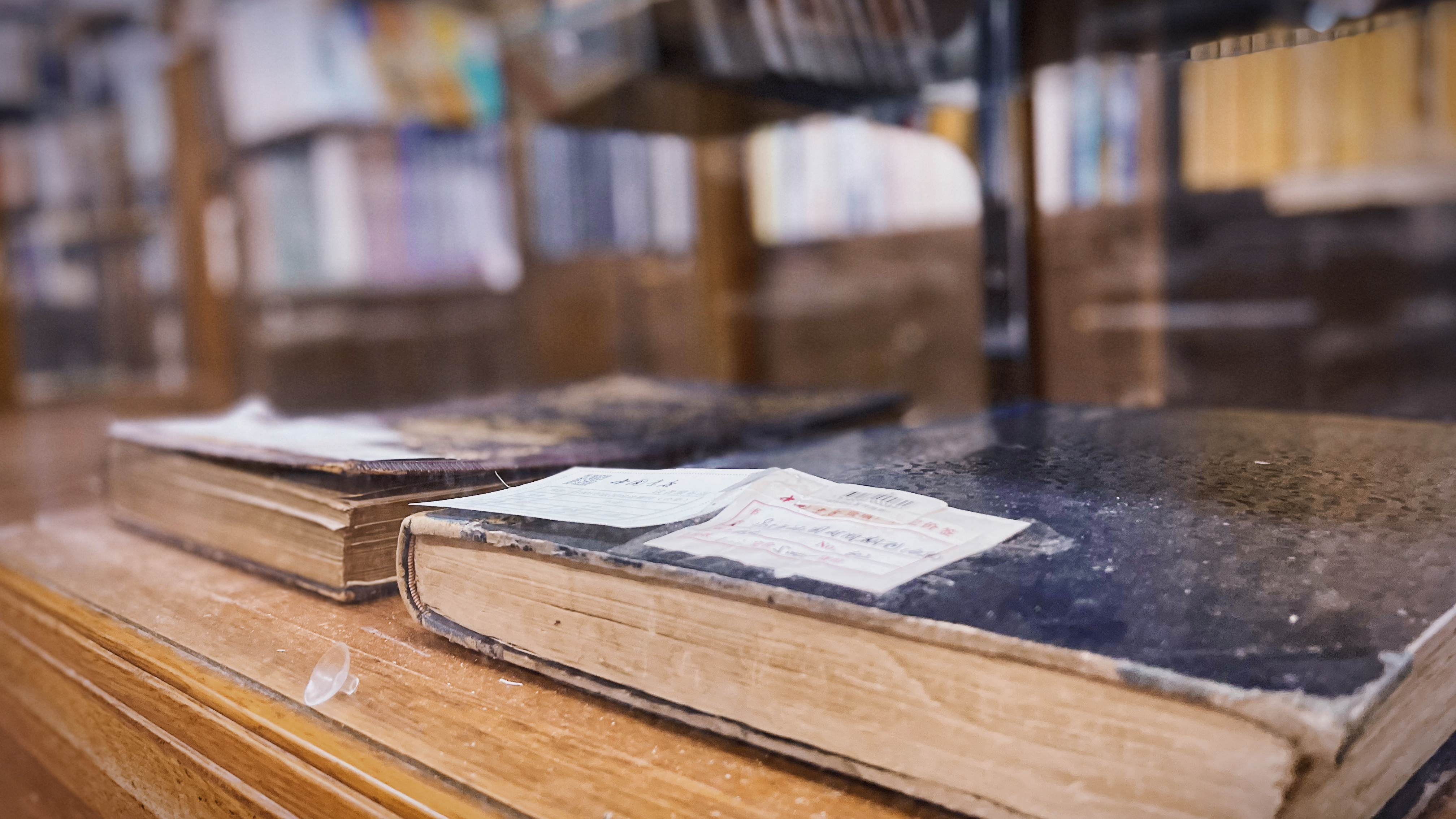
Old foreign books in China Book Store, April 16, 2022. /CGTN
Old foreign books in China Book Store, April 16, 2022. /CGTN
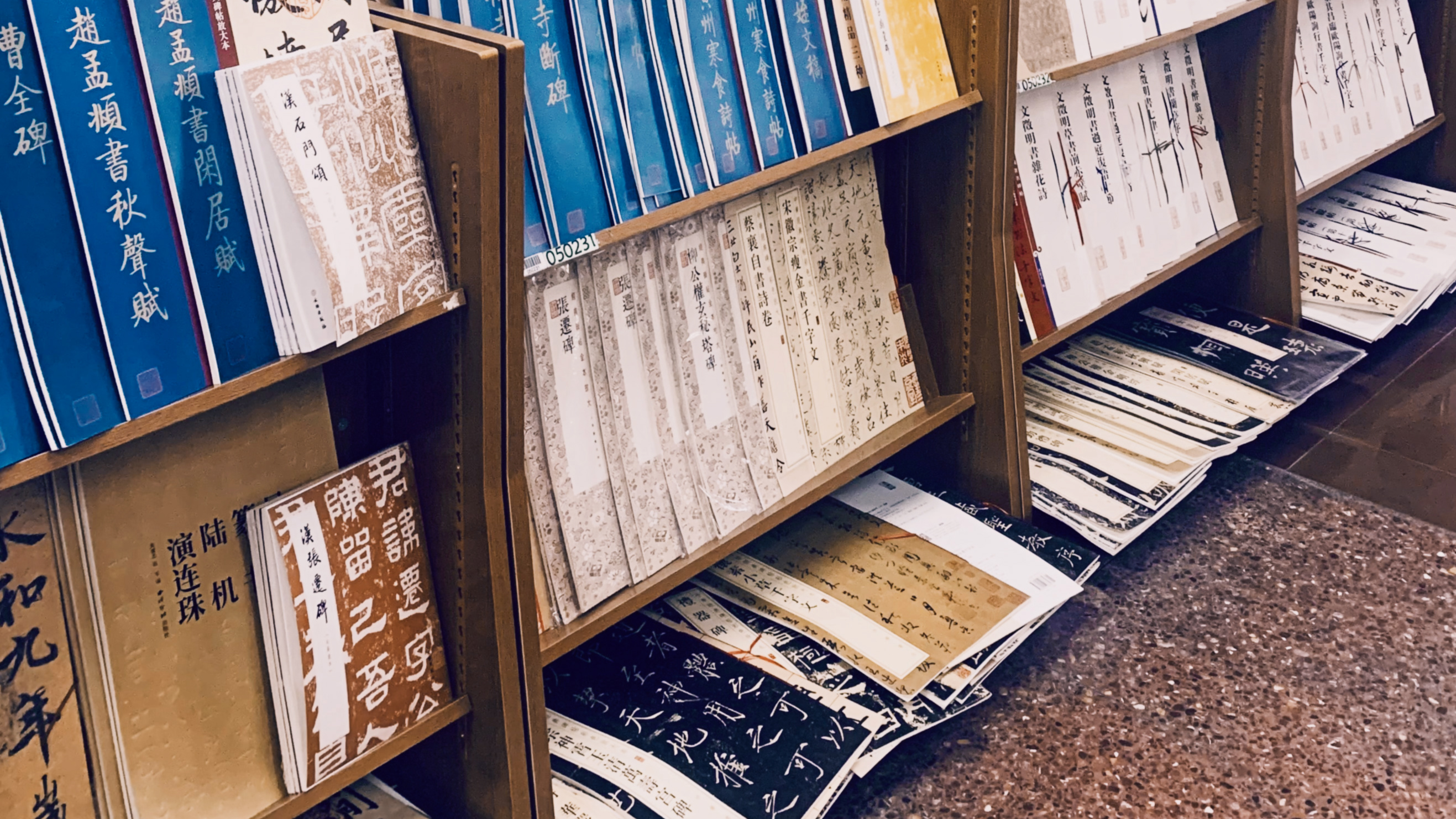
Chinese calligraphy collections in China Book Store, April 16, 2022. /CGTN
Chinese calligraphy collections in China Book Store, April 16, 2022. /CGTN
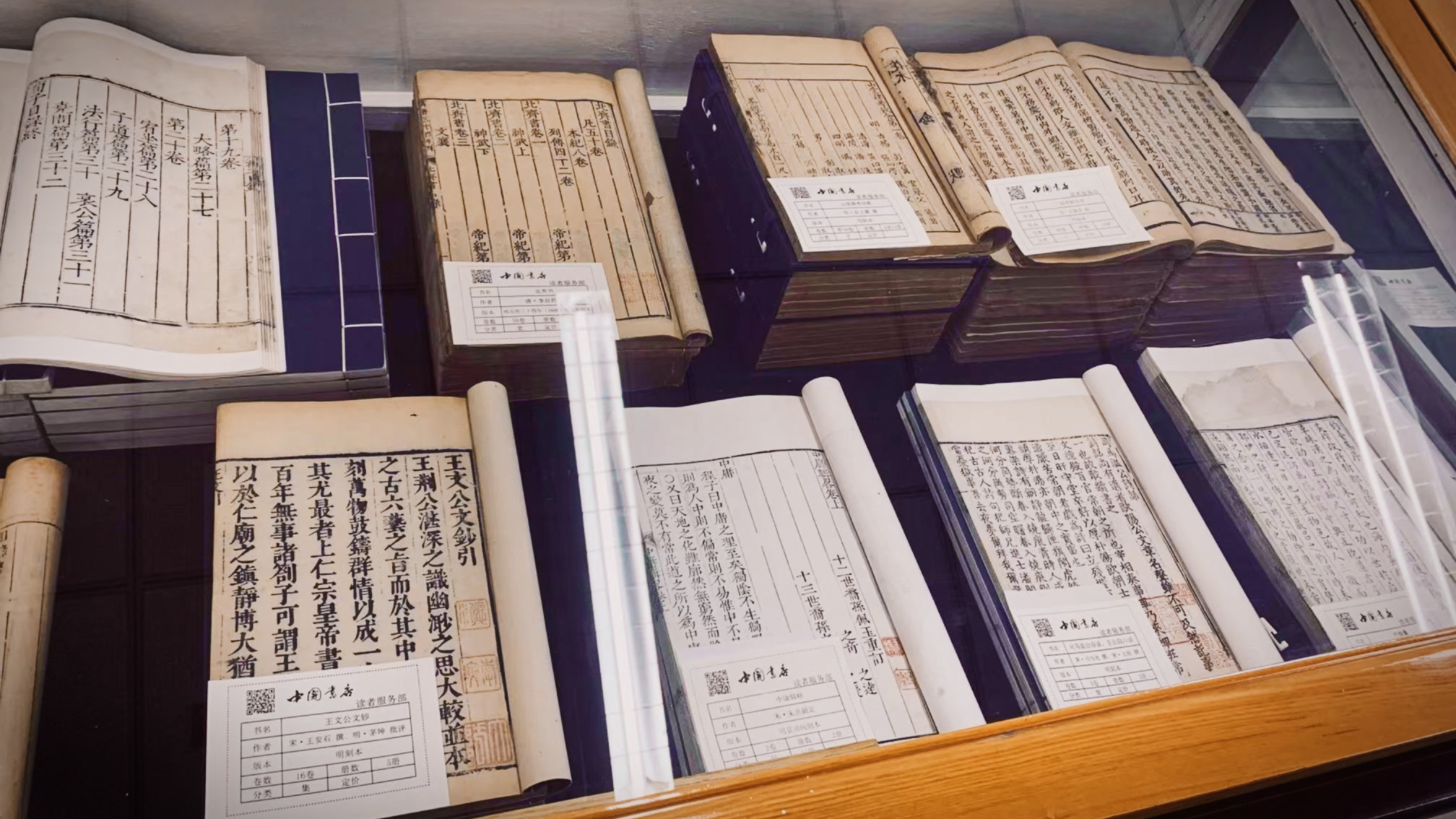
Chinese rare and thread-bound books in China Book Store, April 16, 2022. /CGTN
Chinese rare and thread-bound books in China Book Store, April 16, 2022. /CGTN
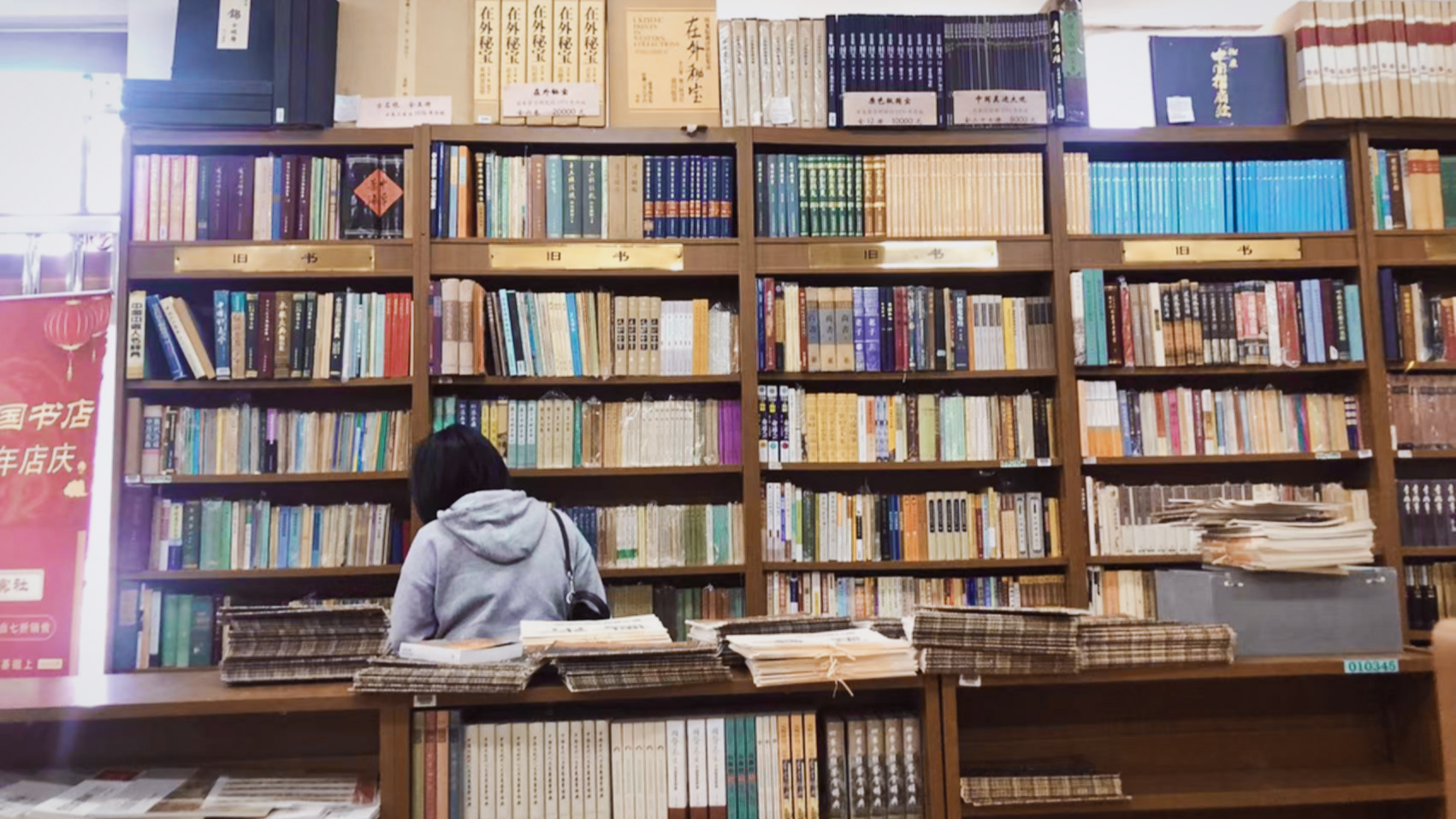
A reader at China Book Store in Liulichang in downtown Beijing, April 16, 2022. /CGTN
A reader at China Book Store in Liulichang in downtown Beijing, April 16, 2022. /CGTN
The popularization of the e-library changed the way people find and read old books. Documents and other materials once hidden away in the library are now accessible to everyone, Zhong said.
He said, "Book collecting is more than a hobby; it helps to facilitate research in Chinese history and culture".
Cover image designer: Li Wenyi, Xing Cheng
Editor: Zeng Ziyi

